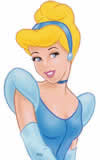These Are The Voyages...
Fast forward 43 years to May 23, 2009 at 7:10PM EDT. Rachel and I are at the end of the line for the 7:15 showing of the eleventh movie in the Star Trek series. She notes that we’ll be on time for the start of the movie due to all of the commercials before the main feature. I tap the tip of my nose. She asks if I always have to do that and I explain to her why it’s so important. Flash back to 1973 or 74. “That’s hitting the nail on the nose” was one of the favorite expressions of Kathy Y. when I was at the University of Virginia; and the nose tap is a reminder of that. Jim A. and I were walking over the bridge in Charlottesville that goes over Hwy 29. We were playing the “Star Trek” game where one of us would say a line from the show and the other would have to name the episode. For example, “What am I, a doctor or a moon-shuttle conductor” would be “The Corbormite Maneuver”. One of us had said a line but neither of us could remember the episode. A girl who had been walking behind us came up between us, named the episode, and kept on walking. Of course, we couldn’t let her get away and that was how we met Kathy.
The movie was almost spectacular. The interior of the Enterprise was disappointing, and the use of “red matter” as a MacGuffin was a stretch. But it was good to see old friends made new again. Zachary Quinto was the perfect choice to play young Spock.
I was born three hundred years too soon.
Rachel. My Daughter's Name is Rachel

Worldview Project: Genesis of an Idea
Start by watching the growth of Walmart across America. Instead of stores, show the rise of Christianity. Instead of just Christianity, show the major worldviews. Have people self-identify, keep the data truly anonymous, and track the ebb and flow of worldviews over centuries.
Beach

Battlestar House
Computers are being increasingly used in diagnostic medicine; my father contributed papers to the Symposium on Computer Applications in Medical Care from ’79-’86; the early computer program MYCIN dealt with diagnosing and recommending treatment for bacterial infections. Norvig, in Paradigms of Artificial Intelligence Programming, stated that it “performed as well or better than expert doctors”. Technology has certainly progressed in 30 years so a high tech company needs to pay Princeton Plainsboro to allow them to test their new hand-held diagnostic tool against the best doctors in the country. And it needs to start beating House by suggesting avenues to explore and diagnosing conditions faster than he can. Deployment of the technology can still be years away (MYCIN was never used to actually treat patients due to legal and ethical issues) but House needs to see the future; that he has to be able to bring something to medicine that the computer cannot. The computer is relentlessly rational, everything House aspires to be, but better than he could ever hope for.
It wouldn’t hurt that the person running the test be a Christian who could go toe-to-toe with House. They certainly exist, but perhaps that would be too much for American television. Shallow atheism is easily expressible in sound bites; Christianity is not. Deep exposition might turn viewers off.
Good and Evil, Part 1b
The close connection between ontology and epistemology is easy to see: one can know only what is. But there is an equally close connection between ontology and ethics. Ethics deals with the good. But the good must exist in order to be dealt with. So what is the good? Is it what one or more people say it is? Is it an inherent characteristic of external reality? Is it what God is? Is it what he says it is? Whatever it is, it is something.
I suggest that in worldview terms the concept of good is a universal pretheoretical given, that it is a part of everyone’s innate, initial constitution as a human being. As social philosopher James Q. Wilson says, everyone has a moral sense: “Virtually everyone, beginning at a very young age, makes moral judgements that, though they may vary greatly in complexity, sophistication, and wisdom, distinguish between actions on the grounds that some are right and others wrong.”
Two questions then arise. First, what accounts for this universal sense of right and wrong? Second, why do people’s notions of right and wrong vary so widely? Wilson attempts to account for the universality of the moral sense by showing how it could have arisen through the long and totally natural evolutionary process of the survival of the fittest. But even if this could account for the development of this sense, it cannot account for the reality behind the sense. The moral sense demands that there really be a difference between right and wrong, not just that one senses a difference.
For there to be a difference in reality, there must be a difference between what is and what ought to be. With naturalism--the notion that everything that exists is only matter in motion--there is only what is. Matter in motion is not a moral category. One cannot derive the moral (ought) from the from the non-moral (the totally natural is). The fact that the moral sense is universal is what Peter Berger would call a “signal of transcendence,” a sign that there is something more to the world than matter in motion. --pg 132.
On the one hand, I’m delighted to have found independent confirmation that ethics relates to ought and is, and the acknowledgement of Hume’s guillotine. On the other hand, I’m worried because of the association between this definition and the potentially erroneous step from “there is something more to the world than matter in motion” to a “signal of transcendence.” Has the possible leaven of this conclusion leavened even the definition of good?
We know that there is something more than just “matter in motion.” As Russell wrote:
Russell has to say this, since he denies the existence of Mind, that is, God. The theist can argue that universals exist first and foremost in the mind of God; the naturalist cannot. So what did Berger mean by transcendence? If there is no god, then our thoughts are solely the product of complex biochemical processes: ”matter in motion” gives rise to intelligence. Intelligence gives rise to morality and imagination. No one should argue that the Starship Enterprise is a sign of transcendence. It is simply a mental state which is the result of matter in motion. If imagination is not a “sign of transcendence” then neither is ethics. Berger is assuming that mental states require something more than biochemical reactions which is an assumption that a naturalist need not grant.Having now seen that there must be such entities as universals, the next point to be proved is that their being is not merely mental. By this is meant that whatever being belongs to them is independent their being thought of or in any way apprehended by minds. --The Problems of Philosophy, pg. 97.
Disney Princess
Which Disney Princess Are You? | |
 | You are part Cinderella. You are hard-working and never complain, however, your trust is sometimes misplaced and people sometimes take advantage of you. Still, you are beautiful inside and out, and one day you will realize it and find true love. |
 | You are part Pocahontas. You defy convention and sometimes do what is considered taboo. Unfortunately, others do not always appreciate your differences, so it's good that you are so strong-willed. You are loyal and you believe in fate. Your true love will find you one day. |
| Find Your Character @ BrainFall.com | |
Part of the Cinderella profile is certainly off as I have been known to complain about various things, particularly institutionalized idiocy. As for Pocohontas, I have already found my true love.
Jesse, this is dedicated to you.
Thinking about reform
Along these lines, I came across these two posts today. The first, deals with the increasing global loss of freedom of speech. The blog author, Tomasso Dorigo, is an experimental particle physicist who is hostile to religion. I wonder if he understands that by undercutting Christianity he is helping to erode one of the bases for the freedom whose loss he laments? A sword may compel someone to submit, but the sword cannot compel someone to believe.
So Christianity has a built-in motivation for freedom of speech.The scripture says, “No one who believes in him will be put to shame.” For there is no distinction between Jew and Greek; the same Lord is Lord of all and is generous to all who call on him. For, “Everyone who calls on the name of the Lord shall be saved.” But how are they to call on one in whom they have not believed? And how are they to believe in one of whom they have never heard? And how are they to hear without someone to proclaim him? -- Romans 10:11-14 [NRSV]
The other post, linked by Irate Nate, concerned gay marriage and the law of unintended consequences. And while it deals with this particular social issue, it is more about issues surrounding cultural revolution.
Hey, Soldier!
To everyone who serves in our military: thank you.

